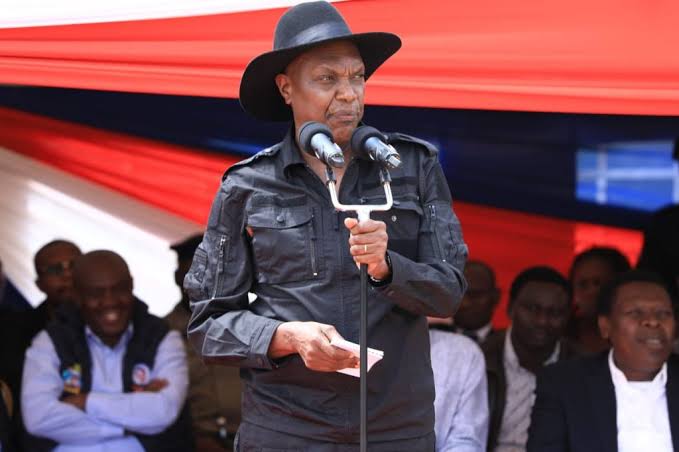The death of Albert Ojwang, a young teacher and active social media user, is becoming more suspicious by the day. What first looked like just another case of police abuse has now turned into something deeper, darker, and possibly deadly.
Jubilee Party Secretary General Jeremiah Kioni has added serious weight to the public’s growing mistrust of the police investigation.
In an interview with Spice FM, Kioni made disturbing claims, directly accusing high-ranking officials of hiding the truth. He believes Deputy Inspector General of Police, Eliud Lagat, might have actually been present during Ojwang’s torture and death.
He openly dismissed the entire investigation as a cover-up. According to him, the people running the show are the same ones who already know exactly what happened.
He mentioned the heads of Kenya’s top security units NIS boss Noordin Haji, Inspector General Douglas Kanja, and DCI chief Amin Mohamed saying they’re all aware of how Albert Ojwang died.
“There’s no investigation going on here. These guys already know the full story how it happened and who was involved”. He said.
“DIG Lagat was probably at the scene where Albert was beaten to death.” Added Kioni.
Albert’s arrest on June 6 in Homa Bay raised eyebrows from the beginning. All he had done was post online about Deputy IG Lagat, something many Kenyans now believe was the real reason behind his arrest.
He was driven over 350 kilometers to Nairobi and locked up at Central Police Station.
Within a short time, he was dead. The police claimed he committed suicide by hitting his head against the wall of his cell, a report that has been disowned.
A postmortem conducted on June 10 revealed severe head injuries, making it hard to believe he harmed himself in that way.
Kioni’s claims now support what many Kenyans have been saying online. There are widespread rumors that Lagat and his driver were seen in Karura Forest a location some say is being used as a secret torture site.
It’s allegedly the same place where Albert was beaten before he was returned to the station, barely alive. The growing belief is that his death wasn’t a mistake, and it wasn’t suicide.
People now want real answers and accountability from those in power.
This case is no longer just about Albert Ojwang. It’s about justice in Kenya. It’s about a system where top officials can be involved in serious crimes and still walk free.

